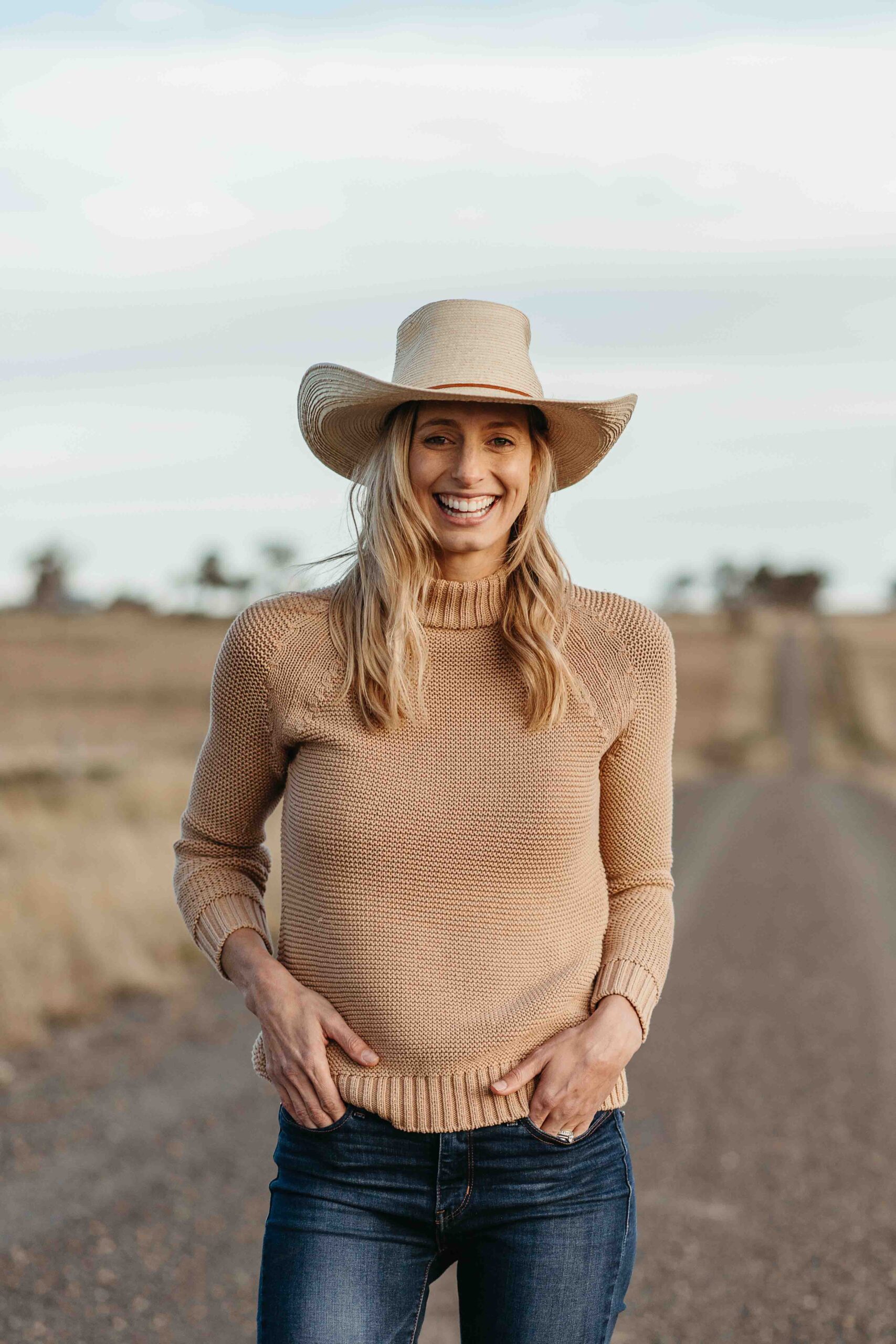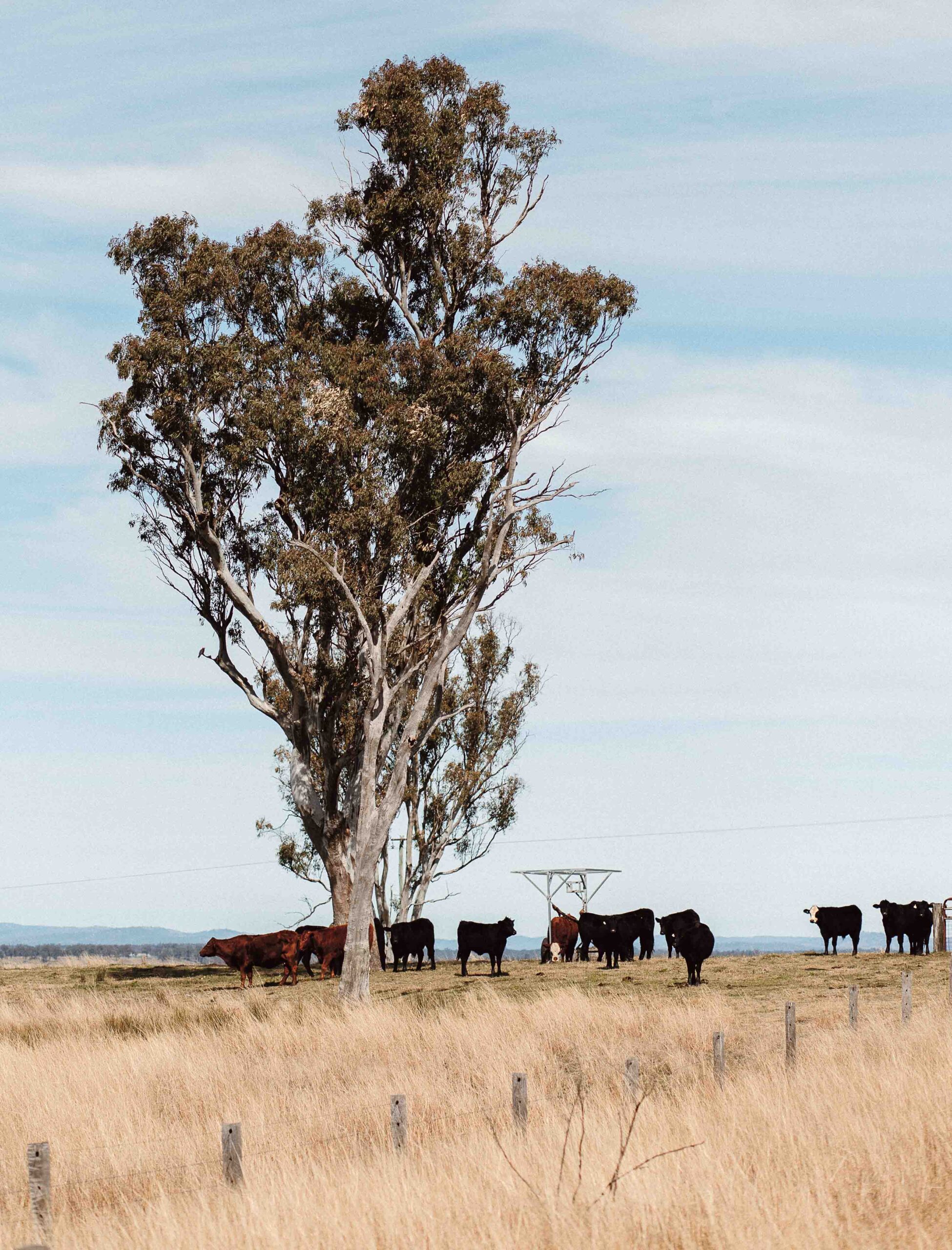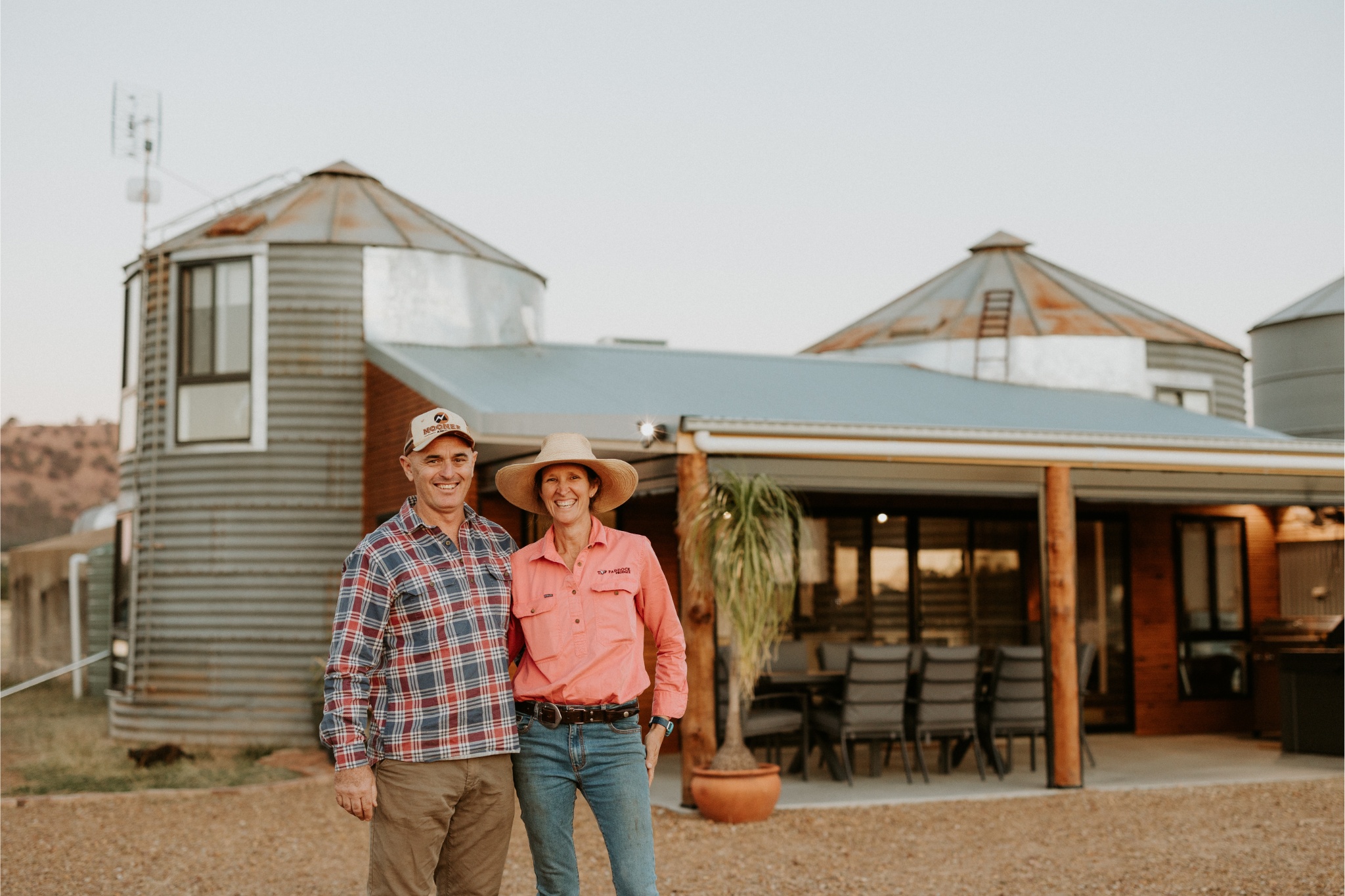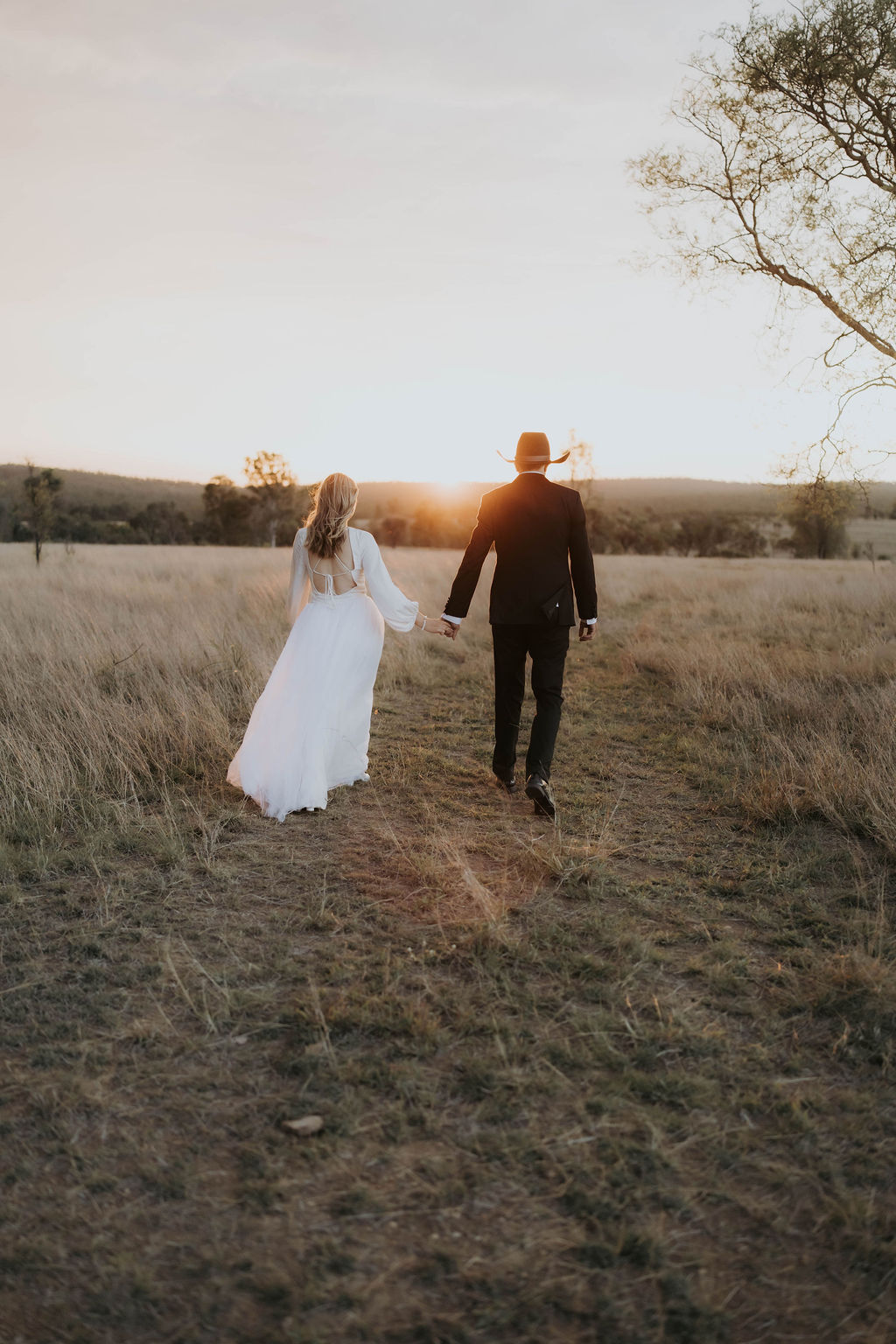Laura Geitz is replicating her rural childhood for her own children.
PHOTOGRAPHY PIP WILLIAMS
Sign up to our mailing list for the best stories delivered to your inbox.
After growing up on Queensland’s Darling Downs, netball superstar Laura Geitz has a new goal: to give her young family a grounded life.
WORDS EMILY HERBERT PHOTOGRAPHY PIP WILLIAMS
Wintry weekend mornings in Australia are synonymous with sport. Across the country, parents stand on sidelines in puffer jackets, stamping their feet and clutching takeaway coffee as their kids dart around in team colours. Netball, in particular, is woven into the tapestry of millions of girlhoods. Players in pleated skirts skim quickflash to the Saturday song of sharp whistles, the thunk of caught balls and the slap of running feet.
Among the thousands, there will be the chosen few who rise through the ranks: it’s a lottery of genetics and physique, talent and passion, opportunity and luck; the right coaches at the right time. Many argue that country kids are at a disadvantage, with fewer resources and pathways; greater geographical barriers and distances to travel; stadiums and astroturf traded for ovals of dirt ringed with lopsided fences and galahs.
But Laura Geitz disagrees. The former captain of the Australian Diamonds knows what it takes to play at the top. A Commonwealth Games championship. Three premierships. All beginning at a small court in rural Queensland, near her family property on the Darling Downs. To make her rise to stardom all the more remarkable, the 33-year-old didn’t don a netball bib until she was 13, when starting high school at Warwick’s SCOTS PGC College.
“The thing about kids playing sport in the country is there’s less pressure on them. They don’t necessarily have the training hours and the commitments that kids in the city do. There were a lot of kids who were competing at the same level as I came through and they were burnt out by the age I was just starting to get going,” she says. “I wasn’t overexposed to the game and I was just sinking my teeth into it when the other kids were exhausted of it. Country kids have resilience, they don’t take things for granted. All those qualities hold them in very good stead when it comes to sport.”
Laura’s childhood was a far cry from bright stadium lights and glittering podium finishes. Growing up on a 600 hectare cattle and grain property just outside the small town of Allora, Queensland, it was a free-range life she now looks back on with relish. Helping with cattle work, Laura spent her days with her older sister Carla, riding ponies, hooning bikes barefoot down dusty roads and surrounded by a menagerie of poddy calves and dogs. Offered a scholarship to Canberra’s Australian Institute of Sport when she was 18, it was Laura’s first time away from home — and it wasn’t easy.
“I cried for two months. I’d gone from being on a farm and surrounded by my animals, to living in Canberra, which for me at the time was a really big city,” she says. “I was living in these concrete dormitories with 10 other girls I’d never met. But after those difficult two months it became the best year of my life and I loved it so much I decided to stay for another year.”
Moving back north to Brisbane, the sportswoman went on to captain the Queensland Firebirds. In 2013, when she was 24, Laura was with her teammates in Christchurch when she got the call: her beloved father, Ross, a passionate second-generation farmer, had been fatally injured by a beast. The tragedy upended the Geitz family, shearing the netballer’s life into before and after.
“It was such a shock. Everything we thought was going to happen, didn’t. The farm couldn’t just be left and we had to get on with it,” she says. “I think I was numb for the entire year. I didn’t really know where I was heading or what was next. I flew back to the farm and Mum and I had a conversation about me quitting netball and coming home. Mum said Dad would never want me to stop playing; he’d want me to carry on.”
“I couldn’t believe it. I had never seen myself in the light of being the captain of the Aussie team,” she says. “Losing dad gave me enormous perspective. It taught me that when opportunities come you grab them with both hands and you make the most of them. You either get on with life or you’re swallowed by it. It also reveals an inner strength that you didn’t know you had. That you’re capable of more than you ever thought.”
For Laura’s mum, Juanita, it was an inconceivable change. “Mum was a traditional farmer’s wife. She had given up her career and had been out of work for more than two decades. When we lost dad, she lost everything,” Laura says. “She has only just moved to Brisbane, and goes back to Allora all the time. That’s her community. She misses the frosts and lighting a fire.”

“Considered living means scaling the pace back a bit where we can,” says Laura.
PHOTOGRAPHY PIP WILLIAMS

Views of the property near Allora, Queensland.
PHOTOGRAPHY PIP WILLIAMS
“Losing dad gave me enormous perspective. It taught me that when opportunities come you grab them with both hands and you make the most of them.”
Retiring from the game in 2018, today Laura is busy as a full-time mum, while husband Mark has just launched his own business in commercial property. But while work commitments keep their postcode in the city, the importance of space for their children — Barney, four, two-year-old Franky and six-month-old Billie — is a priority. After moving to the semi-rural suburb of Brookfield in western Brisbane, there’s room for a pony, some chooks and an easy two-hour drive to the 100 hectares the Geitz family kept of the original farm.
“We’re at a crossroads of what is next. We’d like to run some cattle of our own there, and head there on weekends. For now, I’m trying to replicate the rural lifestyle as best as we can here. I truly believe that is where the best life lessons are learned; growing up in a small community, having strong values, understanding where your food comes from — the cycle of life,” she says. “We lead such busy lives these days and it’s so easy to give the kids the iPad. You can lose touch with the basics, like growing your own fruit and vegetables and enjoying that free-range life. Considered living means scaling the pace back a bit where we can.”
Laura is sagacious when it comes to advising families about ushering in the next generation of sportswomen and men.
“I always say to parents who are running their kids here, there and everywhere: let them play because they want to play or because they love it, not because you want them to be the next superstar,” she says. “Let them find their way. Sport is meant to be fun for kids. I’m really passionate about that: there’s plenty of time for them to become professional.”
Subscribe to Graziher and never miss an issue of your favourite magazine! Already a subscriber? You can gift a subscription to someone special in your life.
To hear extraordinary stories about women living in rural and regional Australia, listen to our podcast Life on the Land on Apple Podcasts, Spotify and all major podcast platforms.

Kylie and Adrian Matthews spent almost four years working on the project.

What began as a postcard-perfect country wedding soon became a story of survival, strength, and the unshakable heart of rural Australia.

Current custodian Penny Lamont says the heritage garden is designed for easy-care and dry times.